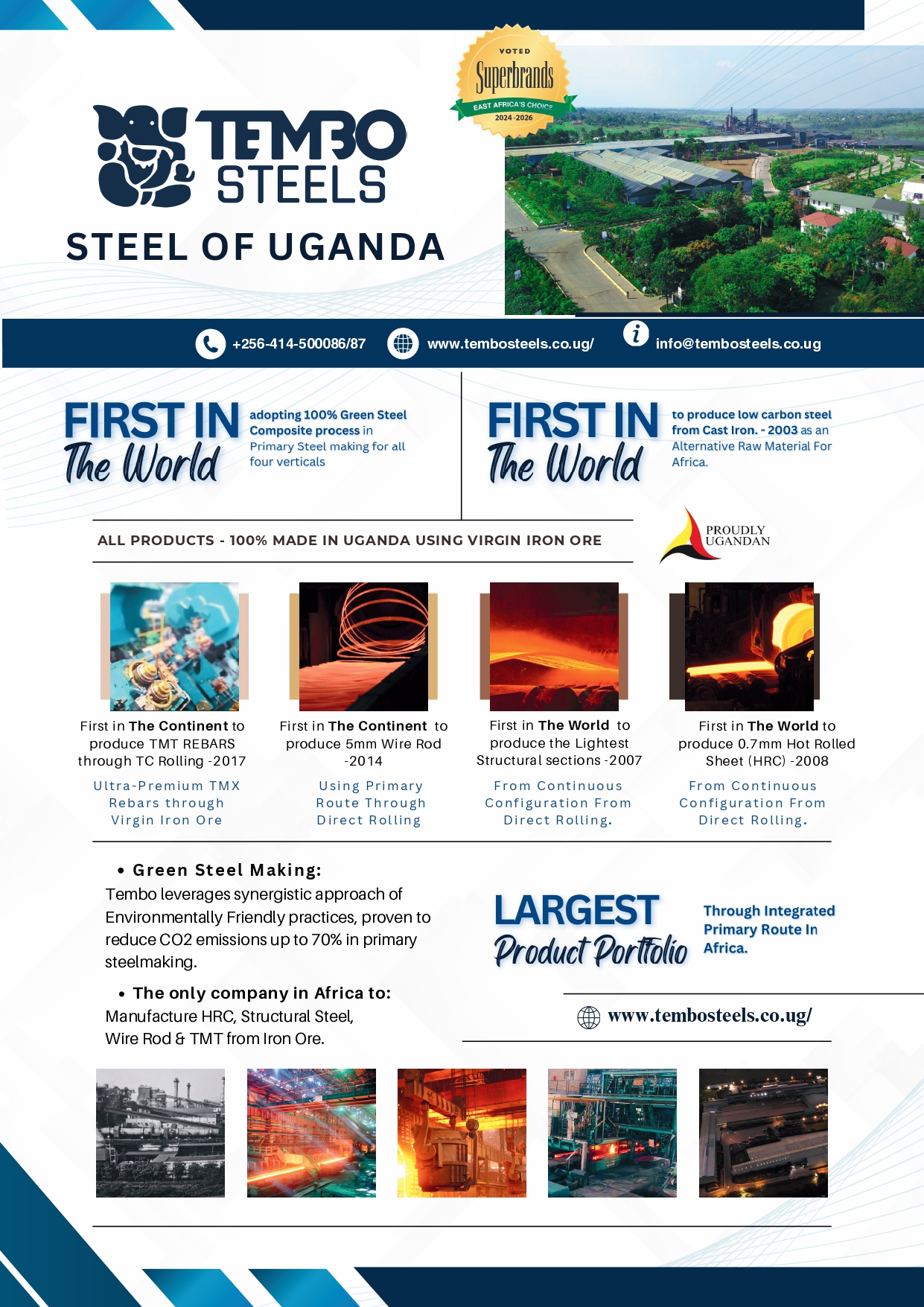Arusha, Tanzania, Saturday, 7th September 2024 – H.E. Amb.Col (Rtd) Fred Mwesigye, High Commissioner of the Republic of Uganda to Tanzania, Zambia, Mozambique, Malawi, Comoros, Madagascar, and Permanent Representative to the East African Community (EAC) and the Common Market for Eastern and Southern Africa (COMESA), held talks with East African Business Council (EABC) Acting Executive Director Adrian Njau on boosting trade and investment ties between Uganda and its counterparts in the East African Community (EAC).

Speaking on the importance of fostering trade ties, the High Commissioner said, “If you can’t trade, you can’t prosper.”
He emphasized the importance of developing transport and logistics infrastructure to enhance trade linkages in EAC countries and across the continent, for businesses to benefit from the African Continental Free Trade Area (AfCFTA) Agreement.
In his remarks, Mr. Adrian Njau stated that EABC is at the forefront of championing evidence-based policy advocacy to foster a conducive environment for businesses in the EAC region. He said according to International Trade Centre in 2023, Uganda’s total imports of goods from the world stood at USD 11.78 billion, while imports from the EAC were USD 2.22 billion. Uganda’s total goods exports to the world amounted to USD 6.3 billion, with exports to the EAC at USD 2.2 billion. The top import countries for Uganda were Tanzania and Kenya. Notably, in 2023, Uganda imported USD 1 billion worth of gold from Tanzania.
Mr. Njau highlighted said One Network Area for telecommunications, a single tourist visa, the free movement of persons using national IDs, and the adoption of the EAC Common External Tariff 2022 are tangible achievements of the integration process that benefit both citizens and businesses.
Mr. Njau pointed out that Non-Tariff Barriers (NTBs) and tariff barriers hinder the growth of intra-EAC trade, negatively impacting business by inflating transaction cost and make goods and services are uncompetitive. He noted that EABC has engaged with the Ministry of Agriculture and Livestock Development of Kenya to ensure that the recent notice on stoppage of sugar importation into Kenya does not include brown/table sugar originating from other EAC Partner States and the Agriculture and Food Authority (AFA) of Kenya not to charge import levies on goods originating from EAC Partner States, as it contradicts Article 15 (National Treatment) of the Protocol on the Establishment of the EAC Customs Union.
Mr. Njau stressed that tax policies should not act as discriminatory factors discouraging cross-border trade in goods or services within the EAC. He cited unharmonized tax structures, such as higher withholding taxes on non-resident -professional service providers from other EAC countries-render them uncompetitive.
He called for the ratification of the EAC Agreement for the Avoidance of Double Taxation and the amendment of Article 24(2) of the EAC Customs Union Protocol to establish the EAC Trade Remedies Committee. He also urged the swift amendment of the EAC Elimination of Non-Tariff Barriers Act, 2017, to bring it into full force. Mr. Njau added that the EAC Sectoral Council on Legal and Judicial Affairs should convene to resolve all legal pending issues at EAC.
Mr. Frank Dafa, Manager of Trade in Goods, EABC emphasized the importance of liberalizing air transport services within the EAC to boost aviation, tourism and reduce air-flight ticket costs. He also discussed the need to harmonize product standards, such as those for timber.
Other topics discussed during the meeting included organizing trade missions between East Africa countries, mapping of harvest seasons, the Tripartite Free Trade Area, engagement with the East African Legislative Assembly (EALA), capacity building for businesses on EAC and AfCFTA agreements, and private sector role in joint bilateral commissions between EAC Partner States.



